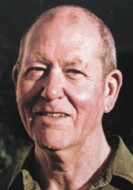Disability Counselling
www.counselling-directory.org.uk/disabilities.html can provide help and support to those that care for a disabled child
When a child is first diagnosed with a disability it can be a very scary and daunting time for parents, siblings and other family and friends. It is important to support the child but it is also important to look after yourself. Getting support through counselling could be a great way to help you through this difficult time.
www.counselling-directory.org.uk/disabilities.html can provide help and support to those that care for a disabled child giving them time for themselves and to discuss their own feelings and thoughts in a neutral and non-judgemental setting. In their time as a career many parents will feel a wide range of emotions from anger and depression to stress and low self-confidence. It is important to find a positive release for these emotions otherwise they can build up over time and cause other mental health issues.
Your child may also benefit from talking to a counsellor to help them come to terms with what has happened to them, and help them move on. They may be feeling angry and may have lost their self-esteem but talking to a professional counsellor will help them deal with these feelings and thoughts.
If you think you or your child would benefit from talking to a counsellor you can find a local qualified counsellor using www.counselling-directory.org.uk


 An Interview with Professor Hilton Davis. Edited by Peter Limbrick
An Interview with Professor Hilton Davis. Edited by Peter Limbrick A guide to meeting the needs of people with learning disabilities, and family carers, from newly arrived, Black, Asian and other Minority Ethnic (BME) communities
A guide to meeting the needs of people with learning disabilities, and family carers, from newly arrived, Black, Asian and other Minority Ethnic (BME) communities